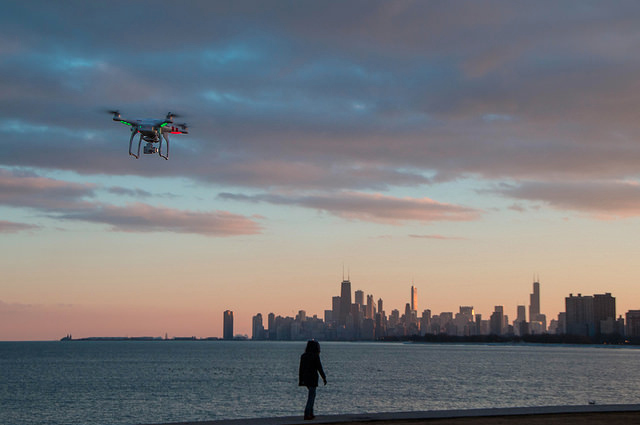Illinois State Police Receive FAA Approval To Fly Drones
By aaroncynic in News on May 14, 2015 2:00PM
The FAA has granted approval to the Illinois State Police to use drones during operations for at least the next two years.
Fox News reports the agency received approval to use the technology in accordance with federal regulations and the 2013 “Freedom From Drone Surveillance” Act passed by the state legislature. In a statement released to the Sun-Times, the ISP said:
“The ability to obtain accurate measurements and clear images from aerial photographs will significantly reduce the amount of time highways are closed during the initial investigation of major traffic crashes.”
In a move that would make George W. Bush's spin team proud, the agency has favored using the term “Unmanned Aircraft Systems” instead of drones, because “it carries the perception of pre-programmed or automatic flight patterns and random, indiscriminate collection of images and information.” The ISP also stressed that the aircraft will not be used for roaming surveillance.
In 2013, the American Civil Liberties Union of Illinois worked closely with the State Police to craft legislation that the two say respected privacy concerns but allowed law enforcement to put to use the technology when it needed to. The law prohibits the use of drones with exceptions that include:
- When Homeland Security declares a “credible risk” of a terrorist attack.
- If an agency obtains a search warrant.
- When an agency is attempting to locate a missing person but not undertaking a criminal investigation.
- Crime scene and traffic crash photography.
Additionally, the legislation states that law enforcement may use drones if it “possesses reasonable suspicion that, under particular circumstances, swift action is needed to prevent imminent harm to life, or to forestall the imminent escape of a suspect or the destruction of evidence.”
While that particular clause could be interpreted as a little open ended with the potential for misuse in regards to First Amendment activities, Ed Yohnka, an ACLU spokesman, said his organization worked closely with law enforcement in drafting the bill to make sure privacy and first amendment concerns were addressed:
“I think there is and was a clear legislative intent that was expressed in the Senate and House in committee and that was a part of the ongoing negations with law enforcement. It made clear that whenever drones were going to be used for surveillance there needed to be a warrant. That message is something that law enforcement accepted, agreed to, something that they understood was really at the core of our pursuing of this legislation.”
